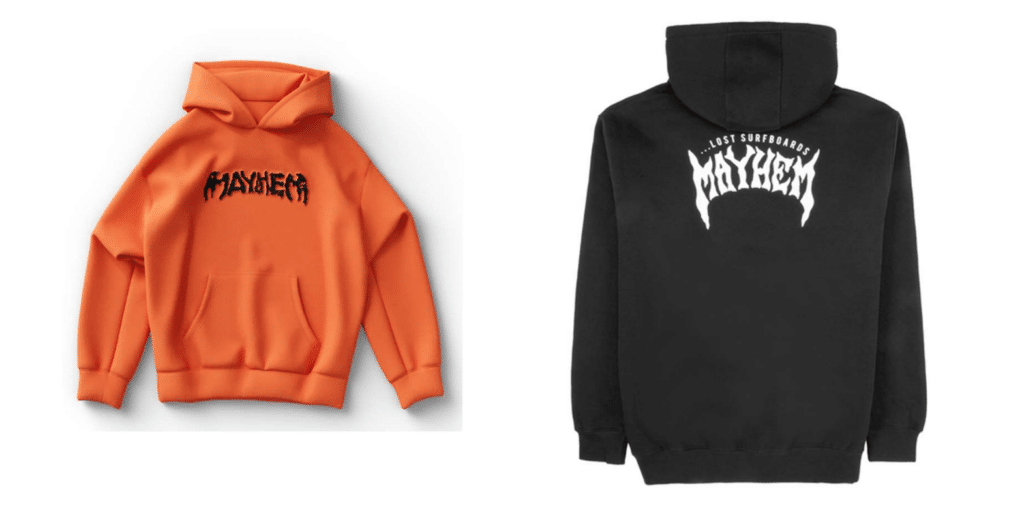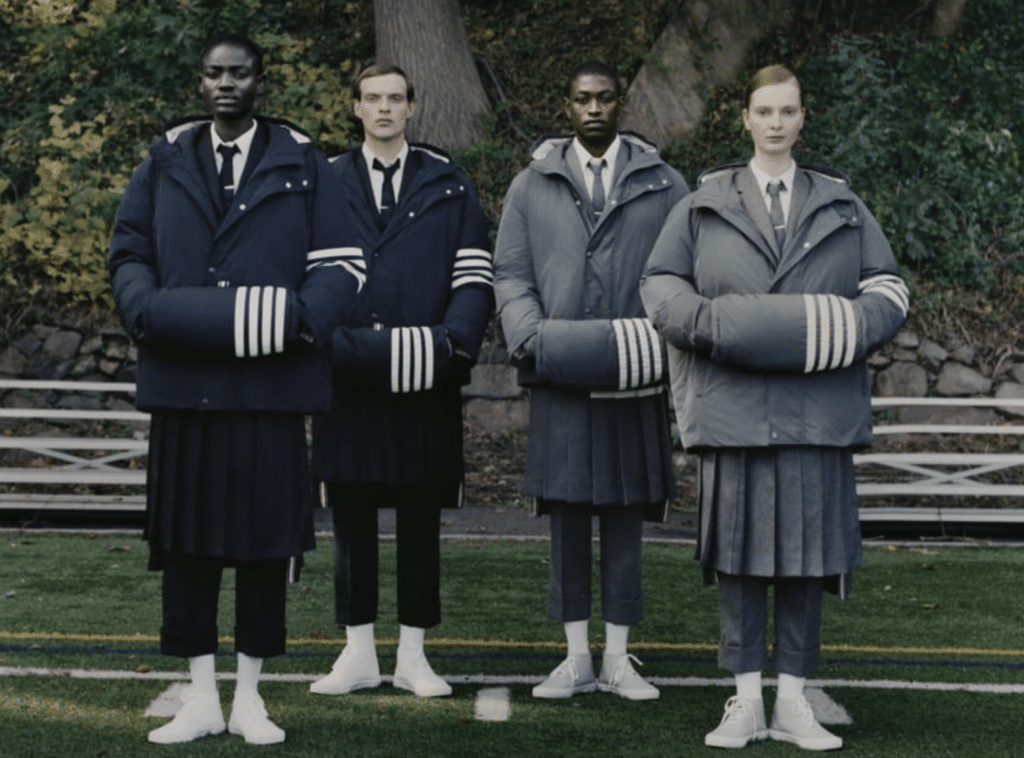Lady Gaga is facing a trademark lawsuit from California-based surf and streetwear brand Lost International, which claims the star’s newly launched Mayhem album, tour, and merchandise line bear a trademark that infringes its longstanding rights. In a complaint filed on March 25 with the U.S. District Court for the Central District of California, Lost accuses Gaga, whose legal name is Stefani Joanne Germanotta, of “willful and blatant” trademark infringement, false advertising, and unfair competition and is seeking over $100 million in damages as a result.
According to the newly-filed complaint, Lost maintains that it has used its stylized “Mayhem” trademark since at least 1988 in furtherance of its efforts to build a global reputation for surfboards, apparel, and accessories. “Mayhem” – which is the nickname of Lost’s co-founder, Matt Biolos – has become synonymous with the brand’s edgy Southern California identity, Lost argues, pointing to an incontestable U.S. federal trademark registration it has for the mark for use clothing items like T-shirts, jackets, and beanies.

Lost claims that the controversy erupted in March when Lady Gaga released her new album, titled Mayhem, accompanied by an international tour and a line of promotional merchandise. Lost alleges that Gaga’s use of the stylized “Mayhem” name on the merchandise is “substantially similar if not nearly identical” to Lost’s own stylized logo. Specifically, Lost asserts that Gaga’s merchandise is likely to cause consumer confusion and that her promotional materials falsely suggest an affiliation, sponsorship, or endorsement by Lost. Still yet, Lost also alleges that Gaga ignored a cease-and-desist letter and continues to market the allegedly infringing merchandise in “bad faith.”
Beyond trademark infringement, Lost sets out unfair competition, false designation of origin, and trademark dilution claims, argues that Gaga’s use of the mark is not only unauthorized but damages its reputation, causes loss of control over its brand identity, and dilutes the distinctiveness of the “Mayhem” trademark. It is seeking a court order enjoining Gaga from using the “Mayhem” name in connection with any products or promotional efforts, to cancel any trademark registrations she may have obtained for the mark, and to award damages “no less than $100,000,000,” including a full accounting of profits and attorneys’ fees.

> The Counterpoint: One obvious line of arguments that Gaga’s legal team might make in response to the suit waged against her: She is not using the Mayhem mark as an indicator of source. Primarily, they may claim that instead of using the mayhem design as a trademark, Lady Gaga is using it merely as a decorative or ornamental feature of apparel and marketing materials at issue to indicate the source of these goods and distinguish them from the offerings of other brands.
At the same time, Gaga may also point to the fact that the title of a single creative work, such as the title of a single album or song, is generally not viewed as serving a trademark function. The U.S. Patent and Trademark Office, for example, routinely refuses to register the title of single creative works on the basis that such titles refer exclusively to the name of the works at play and do not act as broader brand or source identifiers. In other words, the titles tell consumers what the works are called, not who produced them in a way that would merit trademark protection.
THE BOTTOM LINE: The lawsuit underscores the growing legal complexities at the intersection of music, merchandising, and fashion branding – especially as high-profile artists continue to generate substantial revenue from non-music offerings, such as apparel and accessories, markets that were dominated by more traditional fashion/lifestyle companies.
The case is Lost International, LLC v. Germanotta, 8:25-cv-00592 (C.D. Cal.).













